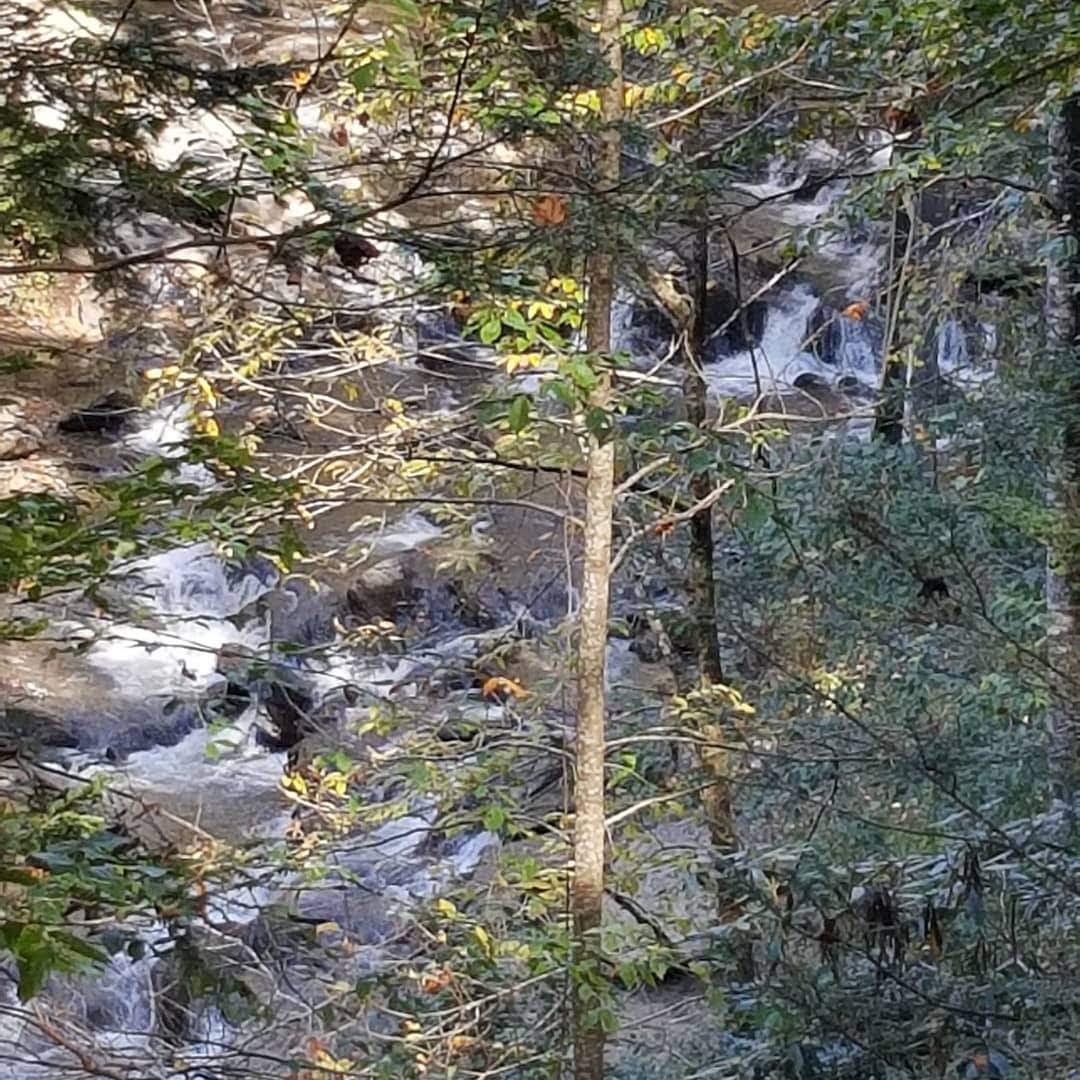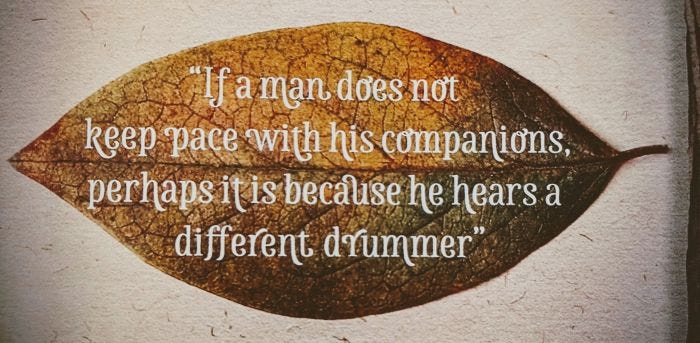Simplicity, simplicity, simplicity!
or Thoreau might have been a grumpy dude, but he wasn't wrong about a lot of things
The woods. They call to me stronger now than even when I was a child. I’ve always been fascinated by the sheer immensity of the forest, of the shadows that dart and the sunlight that flickers. When I was young, my uncle had a farm and we’d ramble around fields and hay stacks only to find ourselves - finally - along a lonely path that wound through a dark wood.
Of course it was haunted. All self-respecting woods should have at least one ghost or legend that makes your hair stand up on the back of your neck and you jump every time you hear something behind you. While I never saw anything in those woods (at least I don’t think I did), they solidified in me a love of the leaf strewn path and a life-long desire to live amongst the trees.
In 1845, Henry David Thoreau built a small cabin on the shore of Walden Pond. For the next two years that was his home and while he was removed from civilization proper, he wasn’t as isolated as we’ve been lead to believe. He walked to town from time to time for supplies as well as companionship. He also had friends visit him in his cabin on the pond. Occasionally he found himself visiting with hunters or ramblers who needed a place to stop over during inclement weather or for a few hours just to rest their legs.
And while he was there, his love of the natural world was intensified - as was his disdain for much of modern society.
The appeal of the woods is in the peace, the solitude, the serenity. It’s the feeling of being surrounded on all sides by nature without a neighbor, house, car or highway within sight or sound. It’s the allure of being “alone” with your thoughts and being able to put modern life in the background for a while. Thoreau was definitely already on his way to his philosophy of simplicity and living in the woods amplified his discontent.
Thoreau’s ideals aren’t wrong. He argues that technological advancement for the sake of technological advancement might not be the wisest thing. What good does it really do anyone to know what someone said six thousand miles away where there’s no direct impact on your life nor can you do anything to sway it? He loathed the fact that telegraph lines were being developed that could tell America what the British royalty were doing at the moment they were doing it and he thought that ludicrous.
I wonder what he’d think of Facebook and CNN?
On principle, I agree with him. I too have wrestled with the necessity of always being “in the know”. Quite frankly, I don’t need to know most of what well meaning people insist I make my business. Perhaps it sounds callous, but knowing there’s a problem on the other side of the globe in no way benefits or alters my existence. I’d be willing to bet that it doesn’t do so for you either.
But it isn’t just that Thoreau argues. He discusses the absurdity of humans having to work their entire lives - back breaking in some instances - for a pittance and never really owning anything they purchase. His main bugbear was that a man may actually buy a house but he never owns it, citing that taxes as well as constant repairs and need for furnishings and upgrades are the real owners. The economy and the plight of man are at the forefront of his record of his life in the woods but they aren’t all he discusses.
In fact, it’s not even these that make this book worth reading.
Thoreau had a poets eye for the natural world and a child-like appreciation for the basic comings and goings of flora and fauna. His descriptions of the seasons on the pond as well as the animals that frequent his time at Walden are delightful. He writes in depth about the earth and the trees, the water in the pond and it’s superiority to the other ponds around the area. Every subtle shift of light is recorded here, every invading mouse and wasp accounted for. You forget you’re reading something written over a century and a half ago, absorbed as you are with the glittering scales of the pickerel. Although it can get tedious : while I appreciate his eye for detail and penchant for preciseness, I could have done entirely without the chapter on his bean field.
Aside from a few glaring examples of “grumpy old man syndrome”, the book is a glorious repository for quotes on the natural world as well as the inner contemplations of man. Here are a few of my favorites :
“I went to the woods because I wished to live deliberately, to front only the essential facts of life, and see if I could not learn what it had to teach, and not when I came to die, discover that I had not lived. … I wanted to live deeply and suck out all the marrow of life.”
“Books are the treasured wealth of the world and the fit inheritance of generations and nations.”
“Follow your genius closely enough, and it will not fail to show you a fresh prospect every hour.”
And this one that I’m certain you’ve heard before :
“If the day and the night are such that you greet them with joy, and life emits a fragrance like flowers and sweet-scented herbs, is more elastic, more starry, more immortal - that is your success.”
There’s more. Loads more. Thoreau was irascible and an idealistic stoic but he made some good, solid points. I don’t argue with most of his conclusions, just his manner of delivery. And even if you think he was blowing hot air in his social commentary, the book is worth reading alone for the the descriptions of nature and the invitation to see the world around you with more scrupulous attention. At times tedious, the pace plodding, I found myself gently roused by bird song or the thunder of ice as it cracked and groaned on Walden Pond in Winter.
Most of all, I’ve taken away a better appreciation of the ability to immerse myself in the natural world no matter where I am. And while I currently dwell in a neighborhood where the houses are far too close together for my own comfort, my heart still aches for the wide, roaming woods. My arms ache for the gentle embrace of a tree-lined path. Until I get there, however, I am reminded to keep my eyes open to the genuine wonder outside my own doors and windows and to never take a single blade of grass for granted. I’m also encouraged to remove myself from the hustle and bustle as often as I can, in any way that I can, in order to better hear the music of nature as well as the beat of my own, inner drum.
Have you read Walden? What did you think? Have you only heard of it through quotes? What, if any, nature centered books have you read and did you enjoy the ability to peek behind the curtain of what seems to most of us a hidden realm? I love reading nonfiction books about the natural world and I think that’s what drew me to finally pick up a copy of Thoreau’s classic. Let me know what you think in the comments, thanks for reading and have a fantastic rest of your day.





I read Walden in college, but maybe I got stuck on the old man grumpiness or the bean field. I thought I had finished it, but... I know I struggled with it.